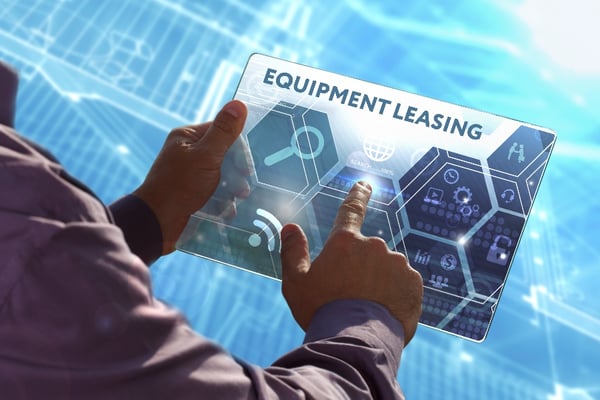A common alternative to buying business vehicles and equipment is leasing. There are two kinds of leasing that is operating lease and financing lease. Both of them have different impacts on accounting and taxation.
Table of Contents
Equipment Leasing: How Does It Work?
There are many reasons why companies lease property:
- Preserving capital
- Maintaining a positive cash flow
- Keeping technology up to date1
- Getting financing
Capital Leases Work: How Does It Work?
A capital lease is a lease of business equipment that acts as an ownership transfer, both for tax and accounting purposes. This type of agreement indicates that lessees become owners of the equipment.
Keeping Track Of Capital Leases
Capital lease payments reduce the liability for the lease, while interest on the lease payments is a deductible business expense. Capital leases are reflected on a company’s balance sheet as assets, with a cost basis determined by these regulations.
Operating Leases Work: How Does It Work?
Operational leases are governed by lease agreements, and the lessee owns no ownership stake in the property. Toward the finish of the rent, the resident returns the property to the proprietor.
Operational lease payments can be compared to interest payments on a loan; they are included on the business tax stub as operating expenses. For bookkeeping purposes, working lease installments are not displayed on the business accounting report, yet are remembered for the business benefit and misfortune explanation.
Operating leases require the lessee to maintain and return the property in the same condition and value as when it was leased.
Capital Lease vs Operating Lease
Unlike operating leases, capital leases are treated as assets on a company’s balance sheet while finance leases are treated as an expense. Think of a capital lease like owning real estate, and an operating lease like renting property.
Operating leases are used for short-term leasing of assets, and are similar to renting in that no ownership is transferred. This guide helps you understand the differences between capital leases and operating leases and their respective accounting treatments.
Lessors of periodic leases are treated as operating expenses, which are expensed on the income statement, affecting both the operating and net income. By contrast, lessees of capital leases have the right to own the assets leased.
Accounting Treatment: Capital Lease vs Operating Lease
It is sufficient to understand the accounting treatment for the lessee in entry-level finance interviews. Capital leases and operating leases are treated differently from one another from the lessee to the lessor.
Operating leases are fairly straightforward to account for, and they are included as operating expenses on the income statement. Since the firm does not own the asset, the asset does not appear on the balance sheet, and no depreciation is recognized on the asset.
An asset under a capital lease is transferred from the lessee to the lender. The loan is treated as a loan (debt financing), and interest is deducted from income.
Which Should You Use for Your Business?
You may have a capital lease on a building or many kinds of machinery that won’t become obsolete, such as long-term leases on office equipment or long-term leases on machinery. You will most likely have an operating lease if you are leasing a sophisticated piece of equipment. Numerous organizations utilize working leases for vehicle renting on the grounds that the vehicles are vigorously utilized and later traded for new models.
Benefits and Drawbacks of Equipment Leasing
Businesses typically Equipment Lease to help fund their operations without having to buy equipment outright. For example, a company making deliveries with vans or trucks can lease those vehicles without having to take out a loan or tie up funds. Earth moving equipment are also helpful.
The drawbacks of operating leasing include higher monthly lease payments and fewer depreciation allowances. Speak to your tax professional before choosing whether to lease or buy equipment for your business.
Advantages of a Capital Lease
A capital lease offers many benefits, including:
- Taxes on taxable income are reduced if the lessee claims depreciation on the asset.
- A reduction in taxable income is also caused by interest expenses.
Advantages of an Operating Lease
Operating leases have several advantages as well:
- Companies can replace or update their equipment more often with operating leases since they are flexible in replacing or updating their equipment.
- There is no risk of obsolescence since ownership is not transferred.
- It is easier to account for an operating lease
- You can deduct lease payments from your taxes
Conclusion
Companies generally use both capital and operating leases, so it’s important to understand how each is accounted for and taxed for both the lessor and the lessee. There are many types of leases, each with its own advantages. Depending on a company’s tax situation and requirement, they may opt for one or both, or even a combination of both.

